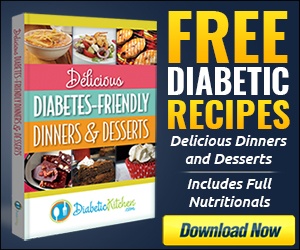There has been a widespread belief that dairy products are bad for your health. However, in the wake of the “fat is not evil” food revelation, people are enjoying more dairy again. In addition, recent studies have now shown that dairy products do not have the negative health effects we once believed.
Whole milk is actually quite nutritious. One cup of milk contains 146 calories, 8 grams of fat, 8 grams of protein and 13 carbs.
One cup of milk also contains 28% of the RDA (recommended daily amount) of Calcium, and 24% of the RDA of Vitamin D. Not to mention Vitamin A, Selenium, and Zinc.
That cup of milk also contains 18% of the daily recommended amount of Vitamin B12 plus Vitamin B6. Nerve function, immune protection and blood cell health all need Vitamin B to thrive. Ever hear of someone getting a Vitamin B shot for energy? These shots usually contain a mixture of Vitamins B6 and B12.
Crucial to muscle and nerve functions, the Magnesium found in milk also supports immune health, reinforces bone strength, and increases energy. For those who suffer from migraines, increasing Magnesium intake has been shown to help alleviate symptoms.
The Potassium in milk facilitates the development and function of nerves and muscles, and keeps the heart beating in normal rhythm, thereby regulating blood pressure. It also helps to maintain the fluid balance in the body, keeping organs hydrated.
It was once thought that dairy raised one’s risk of heart disease because it is high in saturated fat. However, for the majority of the population, there is no proven link between saturated fat consumption and increased risk of heart disease.
In fact, a comprehensive review of 10 different studies showed that milk was actually linked to a reduced risk of stroke and cardiac events. There was also a slight trend towards a reduced risk of heart disease, as well.
In places where cows are mostly grass-fed, full-fat dairy provides even higher reductions in risk for heart attack and stroke. For example, one study in Australia showed that individuals who consumed the highest amounts of full-fat dairy products had an incredible 69% reduction in heart disease risk! Studies have also shown that consuming full-fat dairy can improve other cardiac risk factors like elevated blood pressure and inflammation.
Despite being high in calories, consumption of full-fat dairy is actually linked to a reduced risk of obesity and diabetes. In one study, individuals who consumed the highest amounts of full-fat dairy products had less belly fat, lower triglyceride levels, improved insulin sensitivity and a 62% reduction in type II diabetes risk.
However, the above benefits are not true of low-fat or fat-free dairy. These products actually increase risk of obesity and diabetes because instead of more fat, they contain more sugar. The healthy fats and fat-soluble vitamins in full fat dairy are also absent in low-fat and fat-free foods because the fats have been removed and replaced with sugar.
In fact, sugar hides not only in low-fat and fat-free dairy products, but in countless other foods and drinks. That’s why it is so important to educate yourself and your family about hidden sugars.
Be sure to choose full fat dairy products; organic and grass-fed when available. The products may cost a few dollars more, but the benefits to your health will be exponentially greater.
So, have you been missing out on dairy deliciousness? Are you a cheese fan long-denied? We’ve got great news; not only can you feel good about eating dairy again… it can taste even better than you remember!
Diabetic Kitchen Cheesy Bread Muffin Mix is low-carb, keto-friendly, and the cheesy fix you’ve been dreaming of. These cheesy bread muffins don't just taste good, they're good for you. Two mini-muffins contain over a quarter of your daily fiber requirement, without the carbs and gluten. They’re also made with healthy fats that are crucial for brain and heart health, without the artificial colors, flavors, or preservatives you find in most bread mixes.
Sources:
http://www.foxnews.com/health/2017/05/10/study-finds-good-news-for-cheese-lovers.html
https://authoritynutrition.com/is-dairy-bad-or-good/


Leave a Reply